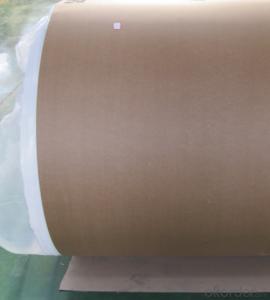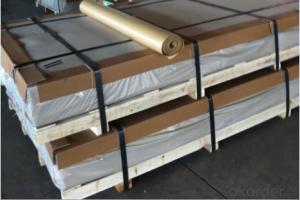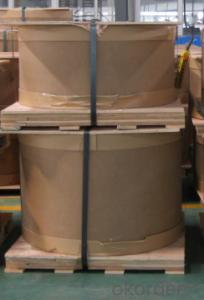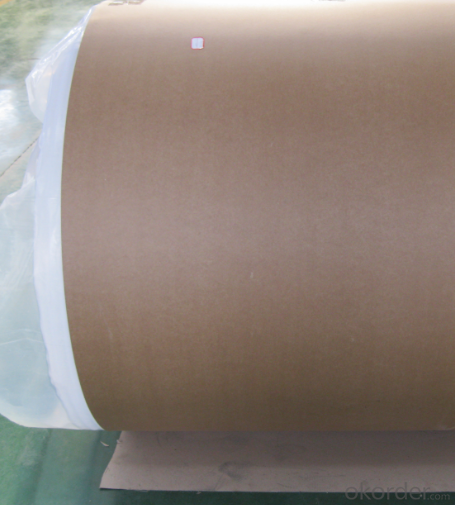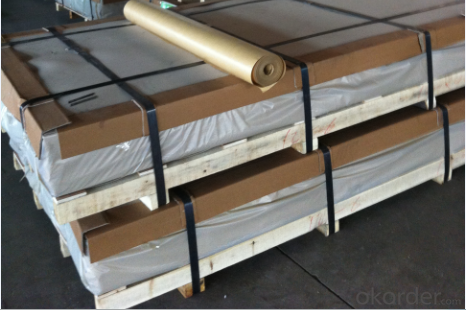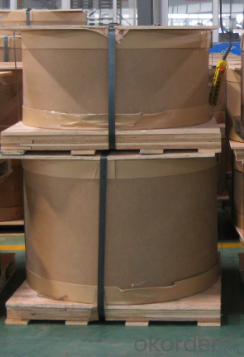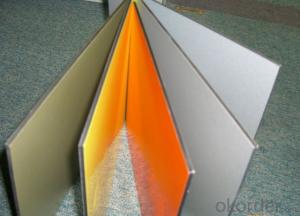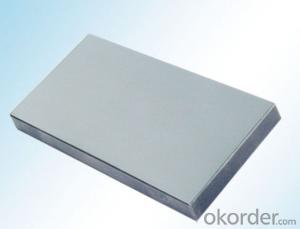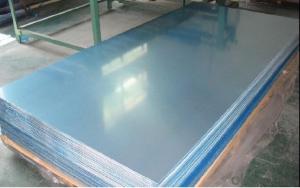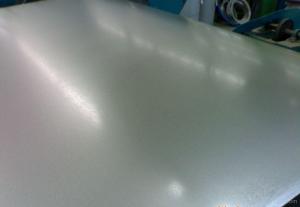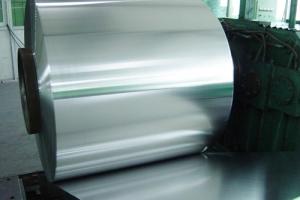Large Aluminum Baking Sheets - Aluminium Hot Drawn Sheet and Alloy Aluminium Plates
- Loading Port:
- Shanghai
- Payment Terms:
- TT OR LC
- Min Order Qty:
- 5 m.t.
- Supply Capability:
- 6000 m.t./month
OKorder Service Pledge
OKorder Financial Service
You Might Also Like
1.Structure of Product Description
hot rolled aluminum coil, cold rolled aluminum sheet, cold drawn aluminum sheet, hot rolled aluminum sheet, are all widely used in the field of decoration field, etc. 1100-H14, 1050-H16, 1060-H18 are the best-selling grades, etc.
2. Main features of the product
a. Competitive price
b. Frist-Class Service.
c. Shortest service.
3. Image.
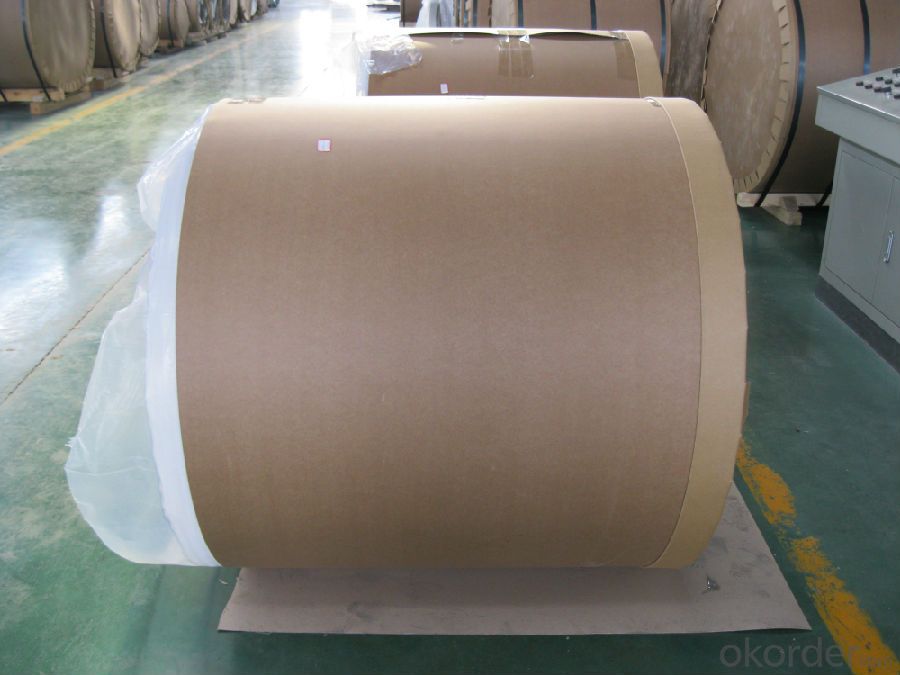
4. Product detailed sizes:
1000mm*2000mm, 1219mm*2438mm,1220mm*2440mm, 1250mm*2500mm,1500mm*3000mm, etc.
5. FAQ:
What is the quality standard?
---Usually our standard is GB3880-2006 or others.
What is the length range:
---It is from 2000mm to 6000mm, etc..
Where is your client from?
---Normally it is from Japan, USA, ENGLISH, SINGAPORE, ETC.
What is your mainly products?
---Normally they are aluminum sheet, checkered sheet, mirror finish aluminium sheet, aluminum casting coil, etc.
- Q: Can aluminum sheets be coated with protective films?
- Yes, aluminum sheets can be coated with protective films. These films are typically made of materials such as polyethylene or polypropylene and are designed to provide a barrier against scratches, abrasions, and other forms of damage. The protective film is applied to the surface of the aluminum sheet, creating a layer that shields it from potential harm during handling, transportation, or processing. This coating process helps to maintain the integrity and appearance of the aluminum sheet, ensuring that it remains in excellent condition until it is ready for use.
- Q: Can aluminum sheets be used in outdoor environments?
- Yes, aluminum sheets can be used in outdoor environments. Aluminum is a highly versatile and durable material that is well-suited for outdoor applications. It has excellent resistance to corrosion, which makes it ideal for withstanding the elements such as rain, snow, and UV radiation. Additionally, aluminum sheets are lightweight yet structurally strong, making them suitable for various outdoor projects such as roofing, siding, and cladding. Furthermore, aluminum is non-combustible, making it a safe choice for outdoor environments. Overall, aluminum sheets provide a reliable and long-lasting solution for outdoor applications.
- Q: Explain how aluminum sheets impact the soundproofing capabilities of a building.
- <p>Aluminum sheets can have a significant impact on the sound insulation of a building. They are often used as a cladding material due to their durability and low maintenance requirements. However, aluminum is a good conductor of sound, which means it can transmit sound waves efficiently. This can reduce the sound insulation of a building, especially if the aluminum sheets are not combined with other soundproofing materials. To improve sound insulation, aluminum sheets can be combined with insulation materials, such as polyurethane foam, to create a barrier that reduces sound transmission. Additionally, using thicker aluminum sheets or adding a layer of sound-absorbing material can help enhance the soundproofing capabilities of a building.</p>
- Q: Can aluminum be either conductive or magnitized?
- Aluminum is conductive. In fact at one point in time it was used as an alternative to copper wiring for home electrical wiring. (There were problems, so it is no longer used).
- Q: What are the various kinds of aluminum sheets utilized in the manufacturing of automobiles?
- <p>Aluminum sheets are widely used in automobile manufacturing due to their lightweight and strength. The different types include: 1. 5000 series aluminum sheets, known for their good formability and corrosion resistance, often used for body panels. 2. 6000 series aluminum sheets, which are strong and used for structural components. 3. 7000 series aluminum sheets, known for their high strength-to-weight ratio, used in safety-critical parts. 4. Aluminum alloy sheets, which combine the properties of aluminum with other elements for specific applications. 5. Aluminum clad sheets, which have a corrosion-resistant layer on the surface. These types are chosen based on the specific requirements of each automotive component.</p>
- Q: Aluminum plate thickness 3 mm, what is the allowable error in the national standard thickness?
- Length: + 1mmWidth: + 0.5mmThickness: + 0.02mm, that is, 2 filaments
- Q: Can aluminum sheets be used for elevator interiors?
- Indeed, elevator interiors can certainly be constructed using aluminum sheets. Aluminum has gained significant popularity as a material of choice for elevator interiors due to its multitude of advantageous qualities. Its lightweight nature, durability, and resistance to corrosion render it highly suitable for long-term utilization in elevator applications. With ease, aluminum sheets can be skillfully fabricated and shaped to perfectly fit the dimensions and design specifications of elevator interiors. Furthermore, aluminum can be enhanced with various types of coatings or finishes, such as anodizing or powder coating, to not only augment its aesthetic appeal but also provide additional protection. Overall, aluminum sheets represent a practical and widely utilized option for elevator interiors within the industry.
- Q: This question asks about the energy savings achieved by using aluminum sheets in comparison to other materials.
- <p>The energy savings achieved by using aluminum sheets instead of other materials can be significant. Aluminum is lightweight and has excellent thermal conductivity, which means it can reduce energy consumption in applications like building insulation and heat exchangers. For instance, aluminum-framed buildings can save up to 40% more energy than those made with traditional materials due to better insulation properties. Additionally, in industrial processes, aluminum's high thermal conductivity can lead to energy savings of around 33% compared to using copper in heat exchangers. The exact amount of energy saved depends on the specific application and the materials being replaced.</p>
- Q: This question asks about the various surface treatments or finishes that can be applied to custom-made aluminum sheets.
- <p>Custom-made aluminum sheets can be finished in a variety of ways to achieve different aesthetic and functional properties. Some of the common finishes include: Anodizing, which provides a protective oxide layer and can be colored; Powder coating, offering a durable and colorful finish; Mill finish, which is the natural surface of the aluminum after rolling; Brushed or Satin finish, giving a鍝戝厜 texture; Mirror finish, providing a reflective, polished surface; and Painted finish, where the aluminum is coated with a layer of paint for color and protection. Each finish serves different purposes, from enhancing corrosion resistance to improving the visual appeal of the aluminum sheet.</p>
- Q: Is it feasible to use aluminum sheets for constructing exteriors of buildings in regions susceptible to earthquakes?
- <p>Aluminum sheets can be used for building exteriors in earthquake-prone areas, but they must be properly engineered and installed. Aluminum is lightweight and flexible, which can be advantageous in withstanding seismic forces. However, it's crucial to ensure that the aluminum is reinforced with a robust structural system that can distribute the forces during an earthquake. The design must also comply with local building codes and seismic regulations. It's recommended to consult with structural engineers and architects experienced in earthquake-resistant design to ensure the safety and durability of the construction.</p>
Send your message to us
Large Aluminum Baking Sheets - Aluminium Hot Drawn Sheet and Alloy Aluminium Plates
- Loading Port:
- Shanghai
- Payment Terms:
- TT OR LC
- Min Order Qty:
- 5 m.t.
- Supply Capability:
- 6000 m.t./month
OKorder Service Pledge
OKorder Financial Service
Similar products
Hot products
Hot Searches
Related keywords
